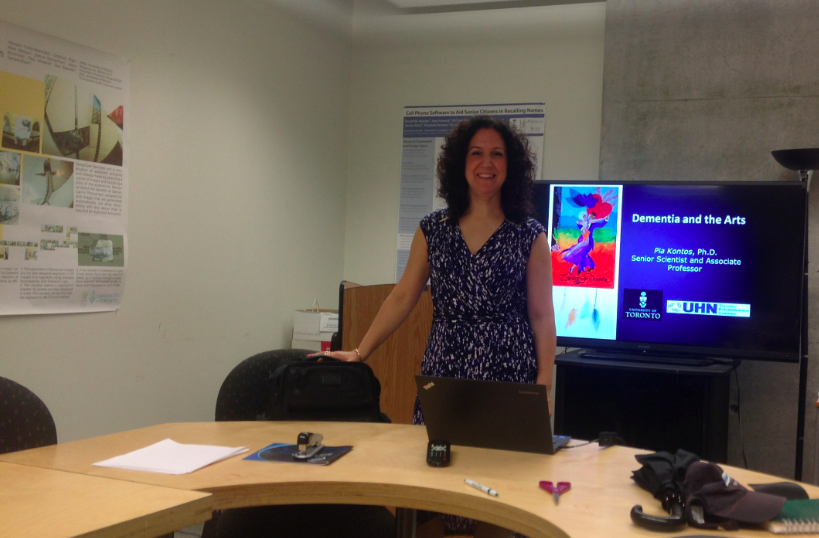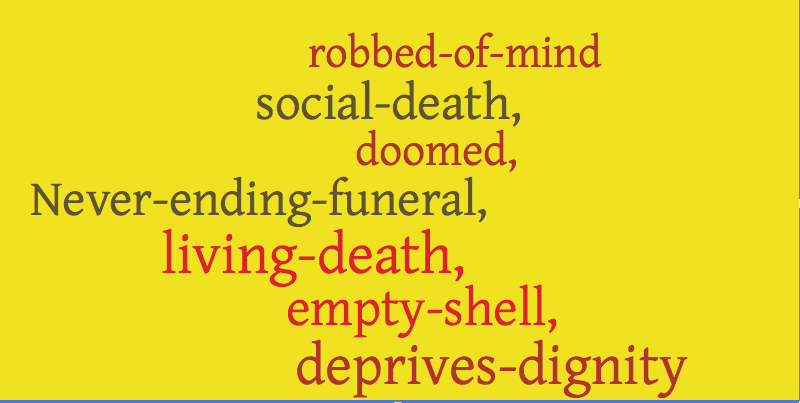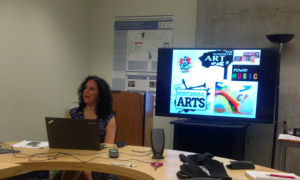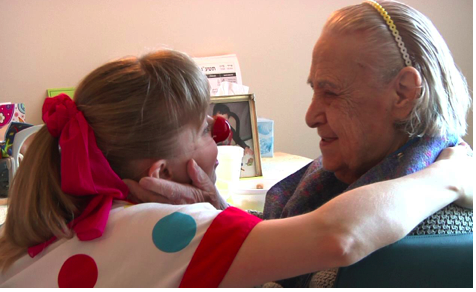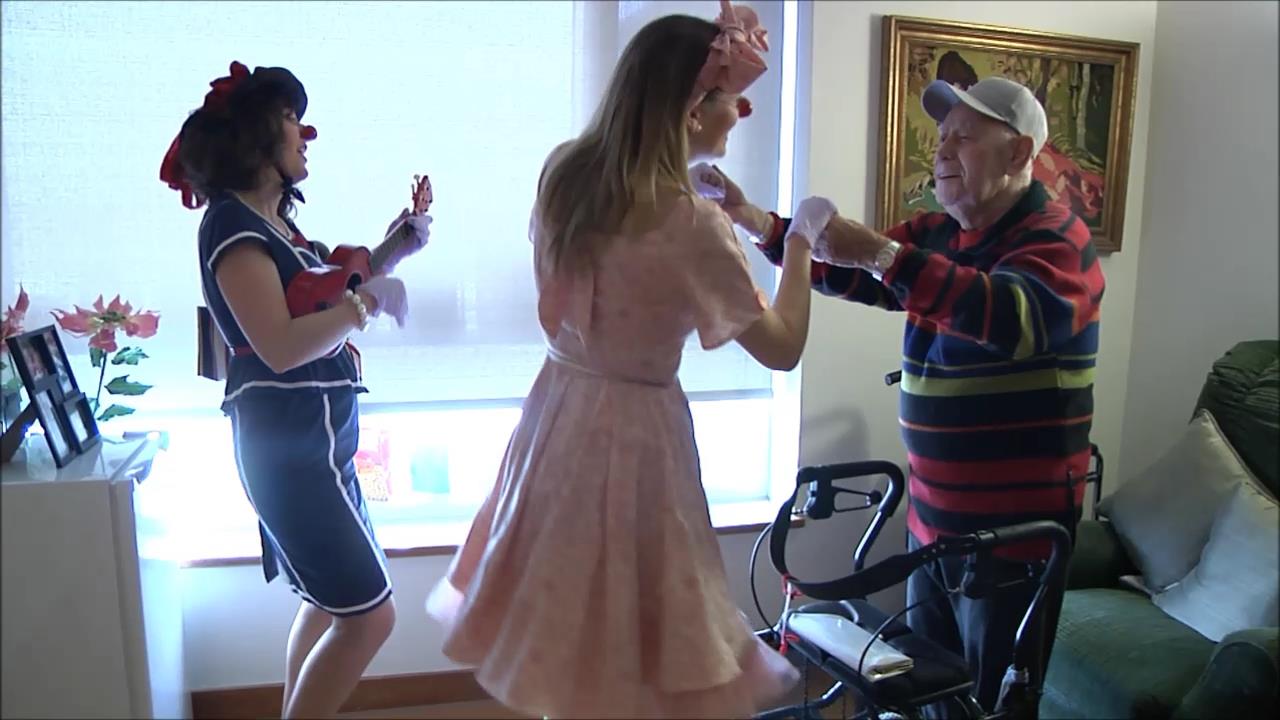Pia Kontos, Dementia and the Arts
Dr Pia Kontos, at TAGlab as guest lecturer, brought a slide with oft-heard descriptions of those with Alzheimer’s:
Changing hurtful words
Using the medium of theatre, Dr Kontos collaborated with equally passionate researchers, Drs. Sherry Dupuis, Gail Mitchell and Christine Jonas-Simpson to mitigate these harmful and hurtful words.
“Theatre has long engaged the public in moral social, and political issues, but its use in research is more novel.”
‘Cracked’: combines research, dementia and the arts
This may be changing. A new theatre production described as a ‘joint creative-research effort among artists and health researchers’, is an experience that aims to change stereotypes about dementia by bringing humanity to the fore.
“a truthful and nuanced story of dementia, where joy and grief, strength and vulnerability, and struggle and peace all come together in an intricate dance. It demonstrates the power of relationships, and, perhaps most importantly, it shows us that who we are – the very core of ourselves – remains intact throughout the dementia journey”
Dr Kontos is out to change what’s often a bleak environment in long-term care homes
In the case of persons living with Alzheimer’s who may seem unreachable, Dr Kontos is calling upon the arts to support self-expression and nurture the deepest part of our humanity.
“There is no pill that does this”
In long term care facilities, elder-clowns bring improvisation, humour and empathy. Along with a Red Nose.
Dr. Kontos led the first nationally funded study of elder-clowning. Twice a week for 12 weeks, a pair of Elder-Clowns engaged with residents living with Alzheimer’s, building on what residents have to offer:
“It’s reciprocal. Elder-clowns build on the residents’ capacity to initiate creative, and playful engagement using verbal and nonverbal communication. These are exquisite moments of engagement. One resident, who never opened her eyes and was confined to a wheelchair began dancing with her shoulders and ‘tapping’ with her clasped hands moving to alternating beats of the music.”
The result: measurably improved quality of life – a benefit for both residents and healthcare staff, who delight in seeing this engagement. Further proof of the Elder-Clowns’ impact: residents remembered the clowns from week to week.
Elder clowning
Unlike pediatric clowns, those trained in Elder-Clowning use minimal make-up and wear costumes that harken back to a previous era, such as 1950s swing dresses.
“Elder-Clowning also relies on biographical information to tailor the interaction to the adult context of the residents. Many types of communication are used: verbal, physical, musical, fantasy, surprise, magic.”
Hearing the Elder-Clowns share and compare their experiences, it’s a thrill for them, too – to elicit responses from people considered unresponsive.
